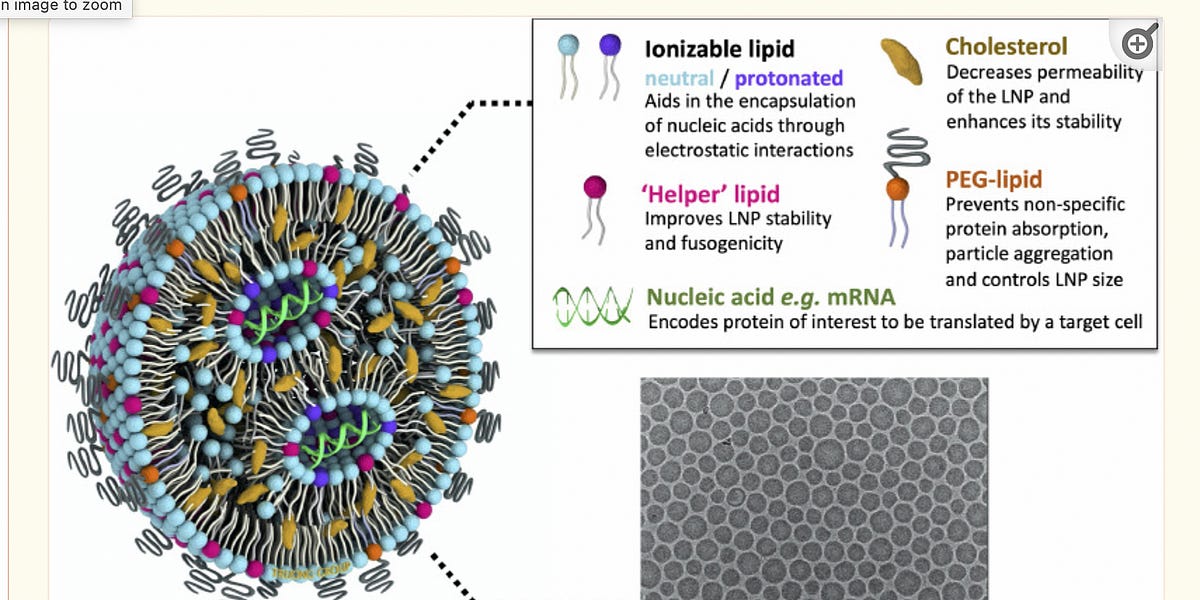jward
passin' thru
Long Covid: Personality Change Is Symptom of Mysterious Disease
Elizabeth Yuko
Skip to main content
‘The Rage Would Come Out of Nowhere’: Personality Change Has Emerged as a Symptom of Long Covid
Some patients are experiencing symptoms long after their Covid infection – and for many of these people, it's changing how they interact with the worldOne July day in 2020, Julie Fallon, a second-grade teacher from Massachusetts, found herself standing in a dumpster in her driveway, shaking and enraged. She doesn’t remember what had triggered her anger that summer afternoon, but recalls reaching for the nearest items and smashing them against the other contents. “I wasn’t really sure if it was real or a dream,” she tells Rolling Stone. “I felt as if I were watching someone else do these things.”
Something similar had happened a few weeks prior, when Fallon was filling out paperwork online, and struggled to figure out part of the form. “The rage would come out of nowhere,” she says. “I would go from zero to 100 in two seconds.” First she started hyperventilating. “Then, before I even had time to think,” she says, “I was watching myself pick up the laptop and slam it on the concrete counter with a force so strong it terrified me.”
Fallon’s path to the dumpster began on March 15th, 2020: the onset of her Covid-19 symptoms. She initially felt better after eight days of bedrest, but on March 31st, she began to experience an onslaught of neurological and psychiatric symptoms, including extreme fatigue and exhaustion so crippling she would almost pass out. “During this time my personality was flat,” she says. “I was apathetic and didn’t really have much emotion. Covid-19 had hijacked my brain.”
But a far more jarring shift soon followed, which caused the normally mild-mannered educator to lapse into bursts of explosive anger and rage. “It was shocking to me,” she says. “My whole life I’ve worked with children, and I’m patient as the day is long. And here I am smashing computers. Here I am in a dumpster, smashing things. And I don’t know why.”
During the time Fallon dealt with extreme frustration and rage, she largely kept to herself, self-isolating for months so she wouldn’t have to interact with anyone other than her husband, and their dog, Lido. “As a teacher, I’ve worked with students that have behaviors that can be explosive,” she explains. “And I remember saying to myself, ‘Why am I acting like my students? What’s wrong?’ That’s when I recognized that I was being really harsh with people. It was like my personality had changed.”
From the moment their initial symptoms set in, life for people with Long Covid is one never-ending adjustment period. The same physical and neurological symptoms and conditions that can linger (or even set in) after someone has supposedly “recovered” from Covid-19 have been referenced repeatedly in medical and general interest articles — think exhaustion, brain fog, and shortness-of-breath.
Yet more than 18 months into the pandemic, personality change — which was recently singled out as one of the most disruptive Long Covid symptoms in a survey of those who’ve experienced it — hasn’t become a topic of widespread discussion. Perhaps that’s because, for those living with it, Long Covid has itself been one massive mind****, as they’ve faced varying degrees of disbelief and gaslighting from medical professionals, as well as families and friends. And it doesn’t help that “personality change” means different things to different people — ranging from a dramatic transformation, to someone getting angry and frustrated more than usual. But this isn’t a conversation that can be put off any longer. For many people experiencing Long Covid, personality change isn’t hypothetical — it’s their reality.
“I want people to understand that our lives have been forever changed. We’re not OK,” one Long Covid patient tells Rolling Stone. “This is real. This happened to us, and there’s no magic pill to make it all go away.”
Starting in the spring of 2020, neuropsychiatrist Adam Kaplin, MD, PhD, began working as part of the Johns Hopkins Post-Acute COVID-19 Team, a multidisciplinary group of practitioners brought together to treat the impact of Covid-19 on the body and brain. “A number of people came out of the experience [of severe illness] with PTSD,” Kaplin tells Rolling Stone. “And when they went home, they were irritable and not their normal selves, and didn’t understand why they didn’t just bounce back to being the way they were before.”
Prior to Covid-19, Kaplin primarily treated patients with multiple sclerosis and other autoimmune diseases who experienced depression, cognitive impairment, and other psychiatric consequences as a result of the activation of their immune system. In addition to telling him that their loved one is “no longer acting like themself,” patients’ spouses would often tell Kaplin that “this is not the person they married.” In these cases it’s not necessarily the illness directly causing this shift in temperament. “It’s not the virus that’s the problem — it’s the immune response to the virus that causes the trouble,” Kaplin says. “But my strong message would be that it’s not a personal weakness, you’re not crazy, and there really is a biology to this, in both directions.”
Although “personality change” may seem like an imprecise, colloquial way to describe what happens when someone’s character or temperament shifts, when it’s the result of an illness or chronic condition, it’s known as “medical personality change,” (MPC) and is an official diagnosis with its own billing code.
In a 2021 article published in the Journal of the Academy of Consultation-Liaison Psychiatry, the authors explain that patients with existing medical conditions may have MPC if they, inexplicably, no longer act like themselves; the diagnosis “is often characterized by bafflingly poor judgment and impairment in several aspects of a person’s life.”
As a neurologist specializing in cognitive disorders of the brain, Anna Nordvig, MD, has frequently seen these personality shifts in older adults with dementia, whom she has treated throughout her career. After noticing an increase in cognitive difficulties in patients who had previously been infected with the novel coronavirus, Nordvig co-founded the Post-COVID “Brain Fog” Clinic at the Columbia University Irving Medical Center and New York-Presbyterian Hospital in May 2020 (she and the clinic have since moved to Weill Cornell).
According to Nordvig, many of these personality changes — which she describes as “a temporary or prolonged tendency towards personality traits with which one was not previously identified” — are seen in neurodegenerative diseases like Alzheimer’s and Parkinson’s, as well as traumatic brain injury. Additionally, she says, many chronic conditions can also cause a change in personality comparable with what Long Covid patients are experiencing, especially the low frustration tolerance that people with myalgic encephalomyelitis/chronic fatigue syndrome (ME/CFS) experience.
The third time Marjorie Roberts ended up in her local emergency room in Johns Creek, Georgia, she says it was the sickest she had ever been in her life. This was the summer of 2020, a few months after she contracted Covid-19.
“My 40-year-old daughter said to me, ‘I want my mom back,’” Roberts tells Rolling Stone. “I was so sick. She had never seen me at a point where I was helpless.”
Her daughter wasn’t only referring to Roberts’ physical condition, but also her drastic change in personality. “Before Covid-19, I was living my life like it was golden,” Roberts says. “I was always the person who lit up the room; always the person who was there to inspire and keep everybody laughing. I was just a joyful, happy spirited person.”
Now, 19 months after her Covid-19 infection — which resulted in spots on her liver, swollen lymph nodes in her lungs, and losing seven teeth — Roberts has regained her positive outlook (and helps others impacted by the pandemic do the same through her life-coaching business), but remains wary of interacting with other people. “I can’t do crowds anymore,” she says. “When I look at a crowd, I don’t see the actual people; what I see is Covid.”
Situations like Roberts’ offer insight into what may lead to personality change in people with Long Covid — including whether it involves specific changes to the brain, or is the result of a person’s lived experiences dealing with a highly traumatic illness during a pandemic. Nordvig says it’s probably both. “It is likely a combination of a primary neurological deficit, and a reaction to the stress, isolation, misunderstanding, and lack of social services out there — which is known as ‘lower frustration tolerance,’” she explains.
This may be another reason why the discussion on Long Covid and personality change is taking a while to get off the ground: Patients may not bring it up in order to avoid another round of gaslighting, and demands from employers and other people in their lives for “proof” that the condition exists. (For instance, many of those who contracted Covid-19 in spring 2020 were unable to access testing, and without evidence of a positive test, were denied care necessary for Long Covid.)
Roberts, for instance, is still traumatized by the gaslighting she experienced during the summer of 2020, when her Long Covid progressively got worse, while the rest of the country carried on as if everything was normal. “People were dying, but at the same time, others were partying,” she explains. “So when I heard people say ‘I want my life back, I want to go on vacation, I’ll send you a postcard,’ no — I don’t want your postcard. You don’t believe that I’m still sick.”
Roughly three months after his February 5th, 2021 Covid-19 diagnosis, Tony Marks returned to his full-time job as the director of a North Carolina-based software company. The first thing he noticed was his escalating reactions to the ringing of his office phone. Though he initially found the sound simply annoying, his frustration gradually built up to the point where it would completely set him off.
“I had co-workers peeping in the door saying, ‘Hey, are you OK?’ because it was totally not like me,” Marks tells Rolling Stone. “They hardly ever heard me talk, and now I’m sitting in a big office by myself and basically yelling at the phone.”
But the real turning point was when Marks asked one of his colleagues why everyone seemed to think he was perpetually in a bad mood — and to be honest with him. “She said, ‘I hate to tell you this, but it’s like you’re getting ruder as the days are going along. You’re short tempered,’” he recalls.
Later that day, when Marks told his wife about this conversation, she confirmed the observation about his change in temperament. “Nobody had said anything to me about it, and now the people that I trust and love the most are saying, ‘Yeah, man, you’re kind of losing it,’” he explains.
The reason this behavioral shift in Marks was so easily apparent was because it was such a departure from his pre-Covid personality. “Everybody would have considered me to be extremely calm, very laid back, very easy going — that guy that nothing affected,” Marks says. “I’ve always had that persona where I never stressed out over something. Can’t say that now.”
While there’s still a long way to go, thanks to researchers like Nordvig, we’re beginning to see what’s happening inside the brains of those with Long Covid. “In advanced imaging — especially in some of our studies — we see changes in blood flow, blood permeability, and brain metabolism that overlap with areas responsible for these areas of the personality,” Nordvig explains. “Neuropsychological testing is something we also send some patients for, to help diagnose the [personality] change. This is still under study.”
And given that Nordvig sees Long Covid personality change as likely being a combination of neurological issues and the mental health impact of long-term stressors, one cause shouldn’t be viewed as more “legitimate” than the other. “The thing is, it’s a false dichotomy, because the mind affects the brain, and the brain affects the mind,” Kaplin explains. “So saying that it’s both means that they’re interacting with one another.”
This interaction is something Fallon has experienced firsthand. Before she realized she was dealing with Long Covid, she sought neurological treatment for what she thought was post-concussion syndrome, and added a psychiatrist to her multidisciplinary medical team.
“At that point I was evaluated and diagnosed with PTSD, severe social anxiety, generalized anxiety disorder, panic, and depression,” she explains. “I was presenting with the type of trauma experienced by war veterans.” It would take several months, but once Fallon was able to recognize and process her personality change, her persistent rage went away, and she felt like her pre-Covid self again.
Similarly, the turning point for Marks came when he was able to identify the change in his personality and adjust his behavior accordingly. He was also diagnosed with anxiety and depression, and started taking medication to help manage both conditions. “Now when the phone rings, I take some extra time before I answer it,” Marks says. “Is the medication helping me with some of that? I really can’t say. But I’m just trying to take the initiative to be aware of what’s going on, and to keep my attitude under control.”
posted for fair use

'The Rage Would Come Out of Nowhere': Personality Change Has Emerged as a Symptom of Long Covid
Some patients are experiencing symptoms long after their Covid infection – and for many, it's changing how they interact with the world.








